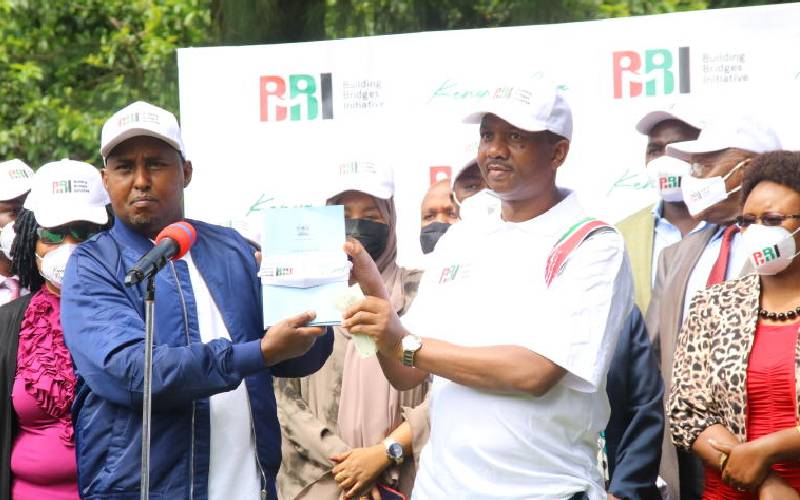×
The Standard e-Paper
Stay Informed, Even Offline

Suna East Mp Junet Mohamed and BBI National Initiative Co-chair Dennis Waweru with BBI steering committee during a press briefing.[David Gichuru,Standard]
In legal circles today, the sub judice rule is facing numerous challenges to its very embodiment – the newspapers having become ‘viewspapers’, as former UK Prime Minister Tony Blair once lamented.